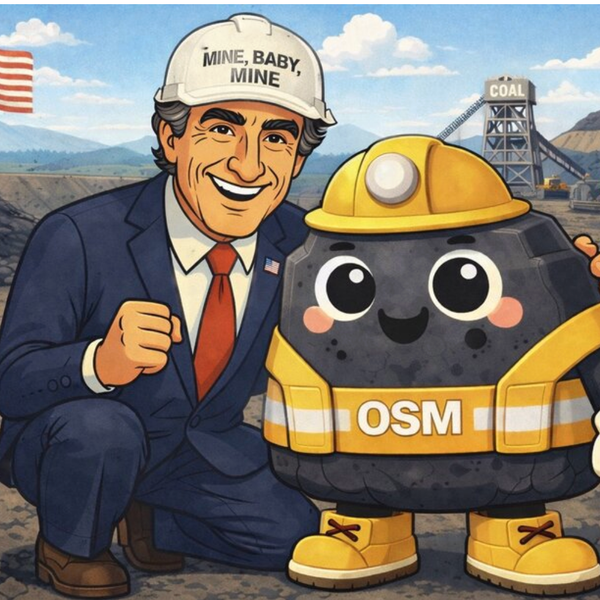
The United States is one of the richest societies on earth — but one with more than its share of poverty. While American capitalism has done wonders to raise living standards for the great majority of people, it has left millions out of this prosperity.
Whether our failure deserves sustained national attention is at the heart of the current debate over social insurance policy. Sen. Joe Manchin (D-WV) drew cheers from conservatives when he declared, "I don't believe that we should turn our society into an entitlement society."
Among the new programs he had in mind is the expansion of the federal child tax credit, part of last year's COVID-19 relief package. The IRS is now sending monthly checks to the families of some 60 million children, in amounts ranging from $300 for each child age 6 or younger to $250 for older ones, up to age 18.
The rationale is that it's a bad thing for kids to be poor and that the simplest, most efficient way to prevent it is to give their parents regular, reliable supplements of money. Conservatives had no problem with this policy when the full benefit went only to parents with substantial incomes — $37,100 or more for a married couple with two children. The poorest families were largely or entirely left out. That treatment was supposed to motivate them to get off their duffs and find a job.
The new version extends the help not only to those at the bottom of the income scale but to just about everyone. That policy has drawn conservative criticism because it doesn't demand paid employment from recipients. This feature, we are told, will cost too much money and encourage idleness.
Manchin is mistaken about the choice we face. The United States has long been an entitlement society, with the government operating a variety of social insurance programs to lessen hardship. That was the idea behind Social Security, Medicare, Medicaid, unemployment insurance, food stamps and the original child tax credit.
But while we spend a lot of money on our social safety net, it has too many holes. We have one of the highest rates of child poverty among industrialized democracies — nearly double those in Canada, Germany, and France.
That is tragic for two reasons. First, it deprives certain Americans who are poor through no fault of their own — namely, children. Second, this deprivation does lasting harm. A 2019 report by the National Academy of Sciences noted "significant associations between poverty and poor child outcomes" — such as "maltreatment, material hardship, impaired physical health, low birthweight, structural changes in brain development, and mental health problems."
The damage manifests itself later in many forms, from dropping out of school to criminal behavior. Those effects put a burden on all of us.
Conservatives place great value on limiting many benefits to those who are holding down jobs, as was done with federal family assistance in the 1990s. But this approach has proved to be of limited value in reducing poverty. Barring the poorest families from the child tax credit also creates complications that can shut out even those who should qualify.
The new approach sweeps away such barriers — and it isn't likely to cause many recipients to buy a hammock and spend their days in it. Not too much should be made of a new study from economists at the University of Chicago that predicts 1.5 million workers will quit working.
Writes Samuel Hammond, director of poverty and welfare policy at the centrist Niskanen Center: "Canada's child benefit is untethered to work and much larger than the comparable tax credits in the United States, and yet Canada's labor force participation is about two percentage points higher. In fact, following the benefit's expansion in 2016, total employment in Canada actually increased."
In Alaska, all residents get a yearly no-strings check funded with oil royalties. A study concluded that the program "had no effect on employment."
Many social welfare programs discourage work by reducing benefits when income rises — creating a "poverty trap." By extending the assistance to all families except the very rich, this program avoids that disincentive. It asks the government to do something it is good at, which is transferring cash, instead of something it's bad at, which is molding character.
The question before us is not whether to have an entitlement society. We already do. It's whether to have a better one.
Follow Steve Chapman on Twitter @SteveChapman13 or at https://www.facebook.com/stevechapman13. To find out more about Steve Chapman and read features by other Creators Syndicate writers and cartoonists, visit the Creators Syndicate website at www.creators.com.
Photo credit: Bessi at Pixabay
- New Data: Rich Got Richer, But Most Americans Fared Worse Under ... ›
- Did America Ever Care About Kids Enough To Provide Quality Child ... ›
- Poll: Nearly A Quarter Of American Households Face Food ... ›
- Child tax credit: Biden touts 'historic' effort to reduce child poverty ... ›
- The Stimulus Child Tax Credit Could Help End Extreme Poverty ... ›
- Policy Basics: The Earned Income Tax Credit | Center on Budget ... ›
- How a Permanent Expansion of the Child Tax Credit Could Affect ... ›
- How could expanded tax credits reduce child poverty? ›
- Child tax credit lifted 3 million kids from poverty in July ›
- New child tax credit could slash poverty now and boost social ... ›








